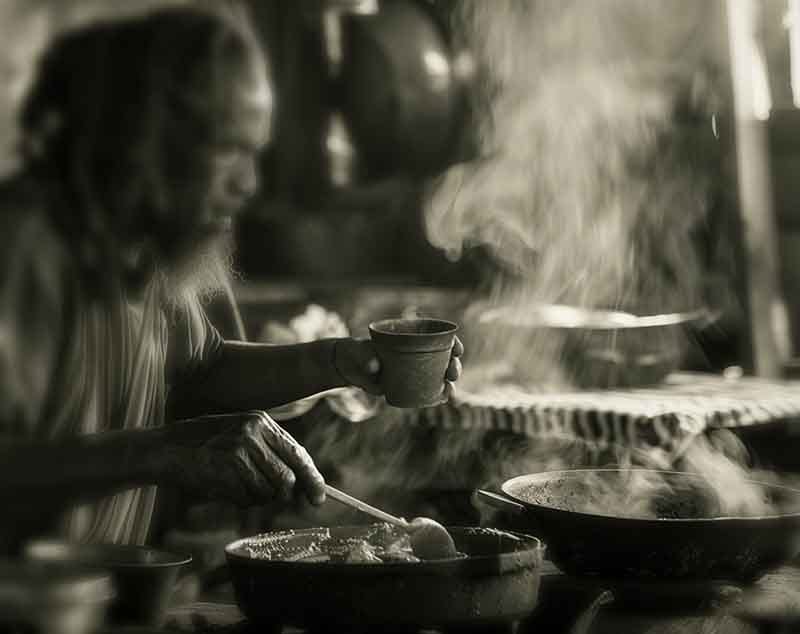Early Life and Freedom
Abby Fisher, a remarkable figure in American culinary history, was born around 1831 on a plantation in Orangeburg, South Carolina. As the daughter of an enslaved mother and a white father of French descent, her early life was steeped in the complex dynamics of race and class in the antebellum South. From a young age, she honed her cooking skills in the plantation kitchen, which would later serve as the foundation for her culinary career.
Fisher’s journey to freedom began after the Civil War when she and her family escaped slavery. They first settled in Mobile, Alabama, before relocating to San Francisco in 1877. This move marked a significant turning point in her life, as she transitioned from enslaved cook to celebrated chef and entrepreneur. In San Francisco, Fisher quickly gained recognition for her culinary talents, particularly her expertise in Southern cooking and preservation techniques.
Culinary Achievements
By the late 1870s, Fisher had established a successful business as a pickle manufacturer, operating under the name “Mrs. Abby Fisher & Company.” Her products were highly sought after among the city’s elite, leading to numerous awards at local fairs. Notably, she won medals at the San Francisco Mechanics’ Institute Fair in 1880 for her exceptional pickles and sauces.
Fisher’s reputation grew to the point where she was encouraged by friends and patrons to publish a cookbook. In 1881, she released What Mrs. Fisher Knows About Old Southern Cooking, making her one of the first African American women to publish a cookbook in the United States. Remarkably, Fisher was illiterate; she dictated her recipes to friends who transcribed them for publication. The book included over 160 recipes that reflected both African and American culinary traditions.
Legacy and Impact
Fisher’s cookbook is notable not only for its recipes but also for its accessibility. She aimed to create a guide that even children could understand, emphasizing practical cooking techniques. Despite some quirks in terminology—such as referring to jambalaya as “Jumberlie”—the book remains an important document of Southern culinary heritage.
After her cookbook’s publication, Fisher’s life became less documented, but her impact on American cuisine endured. Her work has been rediscovered in recent decades, with copies of her cookbook being auctioned and reprinted for new generations of cooks.
Conclusion
Abby Fisher’s story is one of resilience and innovation. From her beginnings as an enslaved cook to becoming a celebrated author and businesswoman, she navigated significant societal challenges while leaving an indelible mark on American culinary history. Her legacy continues to inspire chefs and food enthusiasts today, reminding us of the rich cultural tapestry that defines Southern cooking.

